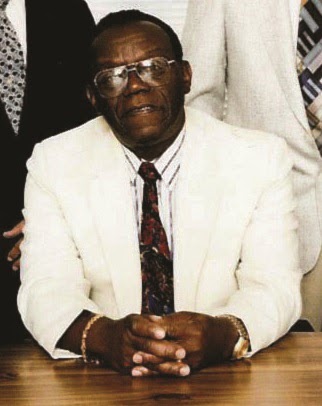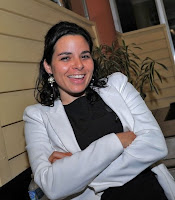Voces y Imagenes Sobre El día de los derechos humanos en Cuba 2013
Imagenes desde Cuba en la calle
Voces opositores
Protestas, golpes, arrestos, allanamientos de viviendas y otras medidas
represivas durante actividades del
Día Internacional de los Derechos Humanos en Cuba
CUBA, 10 de
diciembre del 2013. En el Día Internacional de los
Derechos Humanos en Cuba, activistas en la resistencia a lo largo y ancho de
la Cuba han reportado al Directorio Democrático Cubano sobre la gran cantidad
de golpizas, arrestos, allanamientos de casas, amenazas de que ha sido objeto
desde el pasado fin de semana hasta la fecha, por parte del régimen castrista,
para acallar las protestas y actividades en conmemoración de esta fecha y que
no pudieron silenciar a pesar de la brutal represión.
“Queremos decirle al
mundo democrático que donde quiera que estuvo un activista de los derechos
humanos, en toda mazmorra y calabozo que estos esbirros nos meten, nosotros
celebramos el Día Internacional de los Derechos Humanos y lo celebramos con
orgullo porque nuestras ideas, pensamiento y resistencia no se
encarcelan”,dijo José Díaz Silva, Presidente del Movimiento Opositor por
Una Nueva República y Coordinador del Frente Nacional de Resistencia Cívica
Orlando Zapata Tamayo desde Boyeros, La Habana.
A continuación una relación de
los hechos hasta ahora reportados de actividades y represión:
Actividades y denuncias
Día Internacional de Derechos Humanos en Cuba
10 de diciembre del
2013
Santa Clara, Villa Clara-Informa
Carlos Michael Morales Rodríguez miembros de la Coalición Central Opositora
Frente Nacional de Resistencia Cívica y Desobediencia Civil Orlando Zapata
Tamayo que esta tarde Yoel Bravo López y Maikel Mena Rivalta activista de dicha
coalición se presentaron frente a la vivienda de Damaris Moya Portieles y
regaron propaganda antigubernamentales, fueron arrestados y golpeados por
varios militares. http://youtu.be/yv-tOoXY5EU
La Habana- Convocatoria a plantón-Sara
Marta Fonseca Quevedo representante en función del Frente Nacional de
Resistencia Cívica y Desobediencia Civil Orlando Zapata Tamayo acaba de
convocar a un plantón nacional exigiendo la inmediata liberación de todos los
detenidos. http://youtu.be/t4wVEcj7g2s
La Habana, detenidos y
desaparecidos- Jose Diaz Silva Presidente del
Movimiento Opositor por Una Nueva República y Coordinador del Frente Nacional
de Resistencia Cívica Orlando Zapata Tamayo denuncio la detencion y sin
paradero conocido de los activistas: Mario Alberto Hernandez Leiva de Santiago
de las Vegas, Lazaro Perez Gonzalez, Luis Jesus Gutierres Campos y Jose Alberto
Morera Lafita de Calabazar
Velazco, Holguin-Lanzan gases a
activistas- La activista Damaris García, del
Frente Nacional de Resistencia OZT, ofrece su testimonio de un violento ataque
policial a su vivienda en Velasco, Holguín este 10 de diciembre, Día de los
Derechos Humanos. Efectivos lanzaron gases dentro de la vivienda donde estaban
reunidos varios activistas, al igual que una anciana y el hijo menor de edad de
Damaris quien tiene serios problemas de salud. El pequeño se asfixio y aun
sigue con complicaciones. Escuchen a Damaris en este audio. http://youtu.be/5pHSXQdog24
Camajuani, Villa Clara
–Varias actividades por el Dia de los
Derechos Humanos -El líder del Movimiento Cubano Reflexión y ex
preso político Librado Linares García ofrece un resumen de actividades
realizadas por dicha agrupación como parte de la Jornada por los Derechos
Humanos en Cuba. http://youtu.be/3pEQGgyKGpo
Camaguey- Actividades
Santos Manuel Fernández, del Partido Pro Derechos Humanos y del del Frente
Nacional de Resistencia OZT, detalla actividad siendo realizada en Camaguey por
el Día de los Derechos Humanos. http://youtu.be/VAAPkbRQXBA
Cárdenas, Matanzas- Detenciones
-Leticia Ramos, representante de las Damas de Blanco en la provincia de
Matanzas, reporta varias detenciones de mujeres en dicha provincia este Día de
los Derechos Humanos. http://youtu.be/vlFTssN_Hn4
Grúa Nueva, Ciego de Avila-Maday
Franco, del Movimiento Rosa Parks y Frente Nacional de Resistencia OZT informa
que activistas en Grúa Nueva, Ciego de Ávila están reunidos realizando
actividades a favor de los derechos humanos. http://youtu.be/_PnO416jS4s
La Habana- Plantón por detenciones-
Informa Barbara Recalde, del Frente Nacional de Resistencia Cívica Orlando
Zapata Tamayo y Dama de Blanco informa que han hecho un planto frente al Vivac
donde estan detenido su esposo Hugo Damian Prieto Blanco y varios activistas
por el conmemorar el Día Internacional de los Derechos Humanos: Dayan Gomez,
Hernandez, lazaro Mendoza Garcia, Enrique Diaz Rodriguez, Damaris Reves
Rodriguez, Henry Frei Rodriguez, Francisco Sanz, Luis Andres Dominguez,
Vladimir Paez, Maria Rosa Rodriguez, Rolando Reyes,Oilin Hernandez Rodriguez,
Guillermo Feria, Andres Avelines, Aliuska Gomez, Mariol Rodriguez Miranda, Luis
Manuel Fumero, Jose Antonio Pompa, Ana Nilda Molina, Arleti Prinet,
Velazco, Holguin- El
opositor Ramón Zamora, del Frente OZT, denuncia actos violentos ocurridos este
Día de Derechos Humanos contra activistas reunidos en Velazco, Holguín. http://youtu.be/0uDa-wv_teU
Santa Clara, Villa Clara- Donaida
Perez, del Movimiento Rosa Parks y el Frente de Resistencia OZT, lee un comunicado
desde Placetas, Villa Clara, reiterando el compromiso de dicha organización con
la lucha por los derechos humanos en la isla. http://youtu.be/J2RPgcyVSEA
Bayamo, Granma-Arrestos Félix Rivero denuncia los
arrestos de miembros del Movimiento Jóvenes de Bayamo, entre ellos el
presidente del grupo Yoandri Montoya Aviles. Dia de los Derechos Humanos 2013. http://youtu.be/QlS6FA2NNq8
Santa Clara
–Marcha por los Derechos Humanos
-Integrantes de la Coalición Central Opositora y Frente Nacional de Resistencia
OZT salieron a la calle en Santa Clara, Villa Clara para realizar una protesta
a favor de los derechos humanos cuando fueron interceptados por policías y
arrestados con violencia. En este audio, Damaris Moya, presidenta de la CCO,
narra la protesta hasta el momento de la detención. http://youtu.be/JvhLXNCG0gU
Pinar del Rio- Reunión Día de
Derechos Humanos Armando Peraza, del Movimiento
Cubano de Jóvenes por la Democracia, informa que activistas están reunidos
celebrando el día de los Derechos Humanos en el poblado de López Peña, en Pinar
del Río. http://youtu.be/ouUvf2zjFxk
Baracoa, Guantánamo-Arrestos- Francisco
Luis Manzanet, del Movimiento Opositor Juan Pablo II, denuncia el arresto de
varios activistas en Baracoa por repartir copias del Proyecto Emilia,
iniciativa que busca cambio y libertad para Cuba. Además, Manzanet habla sobre
los Derechos Humanos en Cuba en este audio. Enlace a audio: http://youtu.be/uuPS0Zuylvk
Camagüey- Reunión Día de Derechos Humanos-Yordan
Marrero, del Partido Cubano Demócrata Cristiano, informa que varios activistas
están reunidos en su vivienda en Camagüey para celebrar el Día de los Derechos
Humanos, a pesar de operativos policiales. El opositor aprovecha y envía un
mensaje al pueblo cubano. Enlace a audio: http://youtu.be/lvXlwb3Cqrk
Banes, Holguín- Actividad-Delvis Martínez, de la Alianza
Democrática Oriental, informa que un grupo de activistas están reunidos en la
vivienda de Rafael Meneses en Banes, Holguín realizando un debate sobre los
derechos humanos en Cuba y en el mundo, a pesar de que el domicilio esta
rodeado por la policía política quienes amenazan a los presentes. Los detalles
en el audio: http://youtu.be/E5tywU3Nv18
La Habana –Actividad Sara
Marta Fonseca Quevedo, del Partido Pro Derechos Humanos de Cuba y del Frente
Nacional de Resistencia OZT, detalla actividad que varios opositores están
llevando a cabo en Boyeros, La Habana exigiendo el respeto a los derechos
humanos en la isla. Los detalles en el audio: http://youtu.be/Rix4mT9NtoA
Sancti Spiritus-Varios arrestos-
Segundo Rey Cabrera González, líder del Comité Cubano pro Derechos Humanos de
Cuba en Sancti Spiritus, denuncia que varios miembros de dicha organización han
sido arrestados con violencia por la policía política por tratar de llegar a su
vivienda para realizar un encuentro sobre los derechos humanos este 10 de
diciembre. Los detalles en el audio: http://youtu.be/WskSljr69Qo
Banes, Holguín-Reunión Día de
Derechos Humanos- La opositora Gertrudis
Ojeda Suárez, de la Alianza Democrática Oriental, informa que activistas están
reunidos en su vivienda en Banes, Holguín a pesar de que el régimen ha
organizado un acto de repudio en contra de los mismos. A pesar de las amenazas,
los activistas presentes han continuado con su actividad celebrando el Día
Internacional de los Derechos Humanos. Enlace audio: http://youtu.be/KmtDMaOSmpw
Buenaventura, Holguín- Marcha a
favor de derechos humanos-Delmides Fidalgo López, de
la Alianza Democrática Oriental, informa que miembros de dicha organización
salieron en una marcha a favor de los Derechos Humanos en Buenaventura,
Holguín, además exigiendo la liberación de todos los presos políticos. Los
detalles en el audio.
Santiago de las Vegas, Arrestos-Denuncia
la activista Lourdes Esquivel, del Movimiento Opositores por Una Nueva
Republica, que su esposo José Díaz Silva y otros opositores han sido detenido y
no se conoce el paradero de los mismos. Los arrestos ocurrieron para impedir
que llegaran a un encuentro sobre los Derechos Humanos en la vivienda del
activista Antonio Rodiles, organizador de Estado de Sats. Enlace: http://youtu.be/DYdLxrSl5Do
Palma Soriano, Santiago de Cuba- Misael
Valdés Díaz, del Frente Nacional de Resistencia OZT en Palma Soriano, Santiago
de Cuba, reporta que activistas han repartido copias de la Declaración
Universal de los Derechos Humanos a ciudadanos, quienes las han recibido de
forma positiva. Los detalles en el audio: http://youtu.be/32p06ryjM08
Caibarien, Villa Clara- Atacan
vivienda de opositor- En horas de la madrugada
del Día Mundial de los Derechos Humanos, paramilitares del régimen cubano
atacaron la vivienda del opositor Javier
Delgado Torna, integrante del Movimiento Cubano Reflexión, con substancias
aparentemente toxicas y están impidiendo que este salga para realizar cualquier
tipo de actividad cívica. Enlace a audio: http://youtu.be/sz6g1NOjzyw
9 de diciembre del 2013
Santa Clara, Villa Clara-Lanzan
proclamas contra el régimen- Damaris Moya Portieles
presidenta de la Coalición Central Opositora informa que cuatro miembros de la
organización acaban de lanzar alrededor de 250 proclamas antigubernamentales en
la calle prolongación de Marta Abreu, una de las calles más céntricas del
reparto Virginia, en la ciudad de Santa Clara. Enlace a audio: http://youtu.be/Vrc7qiIVbhY
Boyeros, La Habana-Asedio-
Fuerzas policiales han rodeado la vivienda de la opositora Sara Marta Fonseca
Quevedo, del Partido Pro DDH de Cuba y del Frente OZT, en Boyeros, La Habana en
la víspera del Día Mundial de los Derechos Humanos. A pesar de estos
operativos, Fonseca Quevedo envía un mensaje directo a la dictadura de que el
martes 10 de diciembre saldrán a las calles para reclamar derechos para todos
los cubanos. Enlace a audio: http://youtu.be/aJEx_PGl3rk
Sagua la Grande, Villa
Clara-Arrestos- El ex prisionero político Jorge
Vázquez Chaviano, miembro del Frente Nacional de Resistencia OZT y de la
Coalición Central Opositora, recuenta desde la ciudad de Sagua la Grande, Villa
Clara, como fue arrestado violentamente este lunes junto a otros activistas,
incluyendo a su esposa María del Carmen Hernández. Enlace a audio:
http://youtu.be/cph7VBMc1mo
Sagua la Grande, Villa Clara-
Arrestan a activista y aparecen por volantes y letreros
antigubernamentales- María del Carmen Martínez denuncia que detuvieron a su
esposo Jorge Vázquez Chaviano para que no participe en el Día de los Derechos
Humanos además del que régimen tiene miedo por la aparición de volantes y
letreros antigubernamentales. Enlace a audio: http://youtu.be/0ZKPxDPefGA
Catalina de Guines, Mayabeque- Reportan asedio y vigilancia -Ricardo
Lázaro Fiallo delegado provincia Mayabeque Partido Pro Derechos Humanos de Cuba
afiliado a la Fundación Andrei Sajarov y Frente de Resistencia Cívica Orlando
Zapata Tamayo que el régimen inico un operativo para evitar la celebración del
Día Internacional de los Derechos Humanos comenzando un despliegue de
vigilancia dirigido por el agente de la Seguridad del Estado Aníbal conocido
como “cabeza de toro” quien amenazó a Julián Enrique Martínez Báez
en San José de las Lajas que no habría celebración de esta fecha. La policía
se personó en el hogar de Ricardo Lázaro Fiallo en Catalina de Guines el mismo
día y con las mismas amenazas incluyendo un acto de repudio, siendo la misma
asediada por la policía política y han establecido un puesto de mando a una cuadra
de su casa en Avenida 27, e/ 8 y 10, Catalina de Guines, Provincia Mayabeque.
Enlace audio: http://youtu.be/B4cUJbUVS1k











